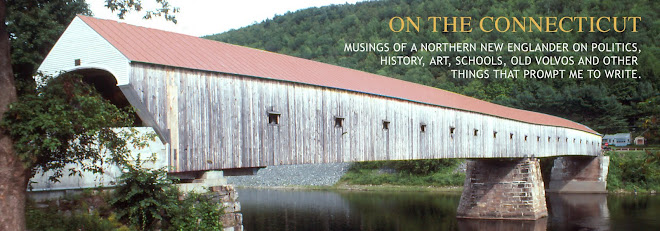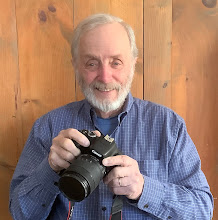After my unpleasant experience with the Brass Shakes, I wasn’t anxious to work in another factory. But being a married art school student, I needed a summer job that paid well.
So I applied for a job at Gregg and Sons in Nashua, New Hampshire, a cabinet manufacturing company owned by the family of our lackluster New Hampshire Senator, Judd Gregg.
I started working in the basement making up packets of screws and nails for the assembly line. Each tiny brown paper bag had to contain just the right assortment to assemble a particular cabinet. I followed a daily instruction sheet and put the stapled bags in labeled trays.
It was cool and quiet in the cellar, and I worked alone listening to a small transistor radio. The shop union rated the various packets at a different hourly rates; so if I worked fast, I could make bonus in addition to my base salary. I was doing quite well when, on my third day on the job, the personnel manager came down with my job application in hand. I figured I was in hot water for something.
“How do you like it here so far, “ he asked.
“It’s nice down here away from the hot weather,” I replied.
“It says on your application that you’re going to art school. Have you ever done any pin striping?”
“A little on trucks and cars.”
“Do you want to try some striping for us here at Gregg?"
“Sure.”
He led me upstairs to the finishing plant where he introduced me to the foreman, a muscular, square-jawed guy dressed in black chinos and a fitted black golf shirt. He had a dark tan, close-cropped gray hair and deep, gravely voice. I don’t remember his name.
“Follow me,” he growled.
As we walked back through the finishing plant, my ears were assaulted by the constant howling of a sawdust exhaust fan and the wailing screams of saws, planers and joiners on the upper floor of the building. The assembly conveyer clattered as it moved finished cabinets past a workstation where five men put on hinges and door pulls with whining pneumatic screwdrivers.
The noise level was so loud that you had to shout to communicate with anyone more than a couple of feet away. The hot summer air was thick with lacquer fumes. While it was a step up from the brass foundry, a pre-OSHA cabinet factory certainly was no picnic.
In the back corner of the production floor, a huge pile of white lacquered cabinets was stacked next to a low workbench. On the other side of the bench was an empty space.
The foreman explained how they mixed brass powder with clear lacquer to produce the striping paint and gave me a handful of dagger stripping brushes.
“Put a gold stripe around the edge of each drawer and each door,” he instructed. “Make sure the thickness of your lines stays the same.” Then he turned and walked away.
I mixed up a batch of paint to the right consistency and began striping.
This was going to be easy. I had a steady hand and worked quickly. With pin striping, smooth quick strokes are the only way to get good results.
An hour or so went by. I had already done about fifteen cabinets and was feeling pretty smug. I was going to show them how it’s done.
Suddenly I heard the foreman’s gravely voice. “Hey! What are you doing?” he barked as he hurried up to my bench.
I looked around. I couldn’t see anything wrong.
“You’re going way too fast,” he scolded. “This job is rated at four pieces an hour. If you keep this up, they’ll raise the rate so no one else can make any money. Put all of those cabinets back on the other side and then go back and make the lines a little wider. And don’t do more than six an hour. That’ll give you time and a half. Just don’t screw it up for the next guy.”
He turned and walked away.
I began transferring the finished cabinets back to the unfinished pile. I could feel the stares of the guys in the nearby hardware workstation.
This was my first taste of union protocol. Here I thought I was making a good impression, and I was already rocking the boat.
Just then, the break buzzer sounded. Workers from the paint shop streamed by on their way to the break room. I joined the hardware crew and as they followed.
“Don’t let him bother you,” one of them explained. “He’s just looking out for us.”
In the break room, I noticed that many of the paint shop guys had hacking coughs and were continually blowing their noses into the paper napkins. Most of them didn’t wear their particle masks during the hot summer weather. Those masks afforded little protection against chemical fumes anyway.
There was a record heat spell a few days later. The temperature in the plant was almost unbearable. After some of the workers opened the windows, a guy from the front office came around and closed them. He said the open windows let in dust and the clerestory roof with its fans was designed to keep the building cool.
This sparked a sit-down strike. I kept working at first, but one of the hardware guys warned me not to be scab. Tempers were as hot as the afternoon sun. So I cleaned my brushes, covered my paint and sat down on my bench.
The foreman and the front office guy came walking through, waving their arms as they shouted at each other. They reminded me of two baseball managers after a bad call.
A few minutes later it was over. We were sent home an hour early due to the heat.
So, I spent the summer working half of the time and looking busy half of the time; and I was getting paid time and a half. When I got bored and management wasn’t around, I worked in the hardware station helping those guys make bonus.
I left for art school in Boston just after Labor Day, even more determined never to work in a place where human welfare is less important than company profits.
I'm just a gigolo...
-
OK. The truth be told, I guess I was a gigolo at one time.
I wasn't trying to be. But a woman I had sex with paid me for my time. It
started cuz I missed w...


No comments:
Post a Comment